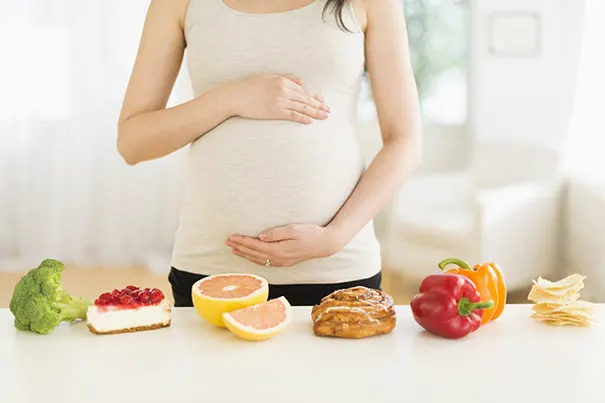Constipation During Pregnancy: Symptoms, Diet, and Tips for Relief
A lot of women suffer the discomfort of constipation during pregnancy. If you are one of them, you need to stop looking for a solution in your medicine kit and take a closer look at your meals. This article will show you how and also help you with some simple remedies for constipation.
What problems are faced during constipation?
Abdominal pain, uncomfortable bowel movements, and hard passage of stools occur during constipation.
When does constipation occur?
Constipation shows a marked increase during the first trimester and third trimester of pregnancy.
Why is constipation caused during pregnancy?
The progesterone in your body increases during pregnancy, causing the intestine muscles to relax, thus slowing down the passage of food. The expanding uterus, too many iron supplements (read more about how to get the right amount of iron during pregnancy), and stress are other factors that cause constipation.
How can you combat constipation during pregnancy?
1. Stay hydrated
This is essential for a healthy pregnancy. Drink around 2.5 litres of water every day. Have juices made from prunes and orange. Watery fruits like watermelon also keep your bowels soft and allow easy passage of stools.
2. Have a fibre-rich diet
Add fibre-rich foods to your daily diet. Around 25 grams of fiber a day is considered one of the best remedies for constipation. Fruits like oranges, strawberries, and bananas, vegetables like broccoli, and cabbage, cereals, and beans are rich in fibre. Also include food items like almonds, flaxseeds, peas, lentils, whole-grain bread, apples, and strawberries.
3. Divide your meals
Heavy meals increase the work of your digestive system. Divide your intake into six or seven smaller healthy pregnancy meals, as they are easier to digest.
4. Be active
Light, regular exercise is the key to a healthy pregnancy. Walk for 20 minutes daily. You may try swimming, too. Light yoga poses like Pawanmuktasana (the wind-relieving pose) are also known as help during constipation.
5. Use a squat toilet
A squat toilet or an Indian toilet eases stool passage. Consult your doctor if you're not used to such a toilet. On a western toilet, you may use a small stool to rest your feet or sit with one foot raised with the knee close to your chest. Also practice deep breathing to relax your pelvic floor muscles before going to the toilet.
What are the other problems that may come with constipation?
Generally, constipation during pregnancy is not a serious problem. However, if it is accompanied by chronic abdominal pain, passing blood, or diarrhoea, you must consult a doctor.
Immediate Constipation Relief
If you’re finding that the lifestyle changes listed above don’t work for you, turn to your healthcare provider. Your provider may recommend one of these over-the-counter medications, which can help you pass hard stools, but are not a cure for constipation:
A bulk-forming agent, which works by absorbing water and adding moisture to your stool to make it easier to pass. Make sure to drink extra fluids if you’re taking this medication.
A stool softener, which adds liquid to your stool to soften it
A stimulant, which uses a chemical to stimulate intestinal activity.
Potential Complications of Constipation
If the symptoms of constipation persist for several weeks or longer, this indicates chronic constipation, which can lead to complications such as:
Hemorrhoids, which are swollen veins in your anus
Anal fissures, which are tears of the skin in your anus
Fecal impaction, which is when hardened stool accumulates in your intestines
Rectal prolapse, which is when your rectum protrudes from the anus.
To help avoid complications, it’s safest to get in touch with your healthcare provider at the first signs of constipation or pain.
FREQUENTLY ASKED QUESTIONS
You may experience constipation early in your pregnancy, but it’s more common later in your pregnancy.
With its expert tips and advice, Pampers helps you have a healthy pregnancy. Visit often for more updates on pregnancy and early parenting advice.

